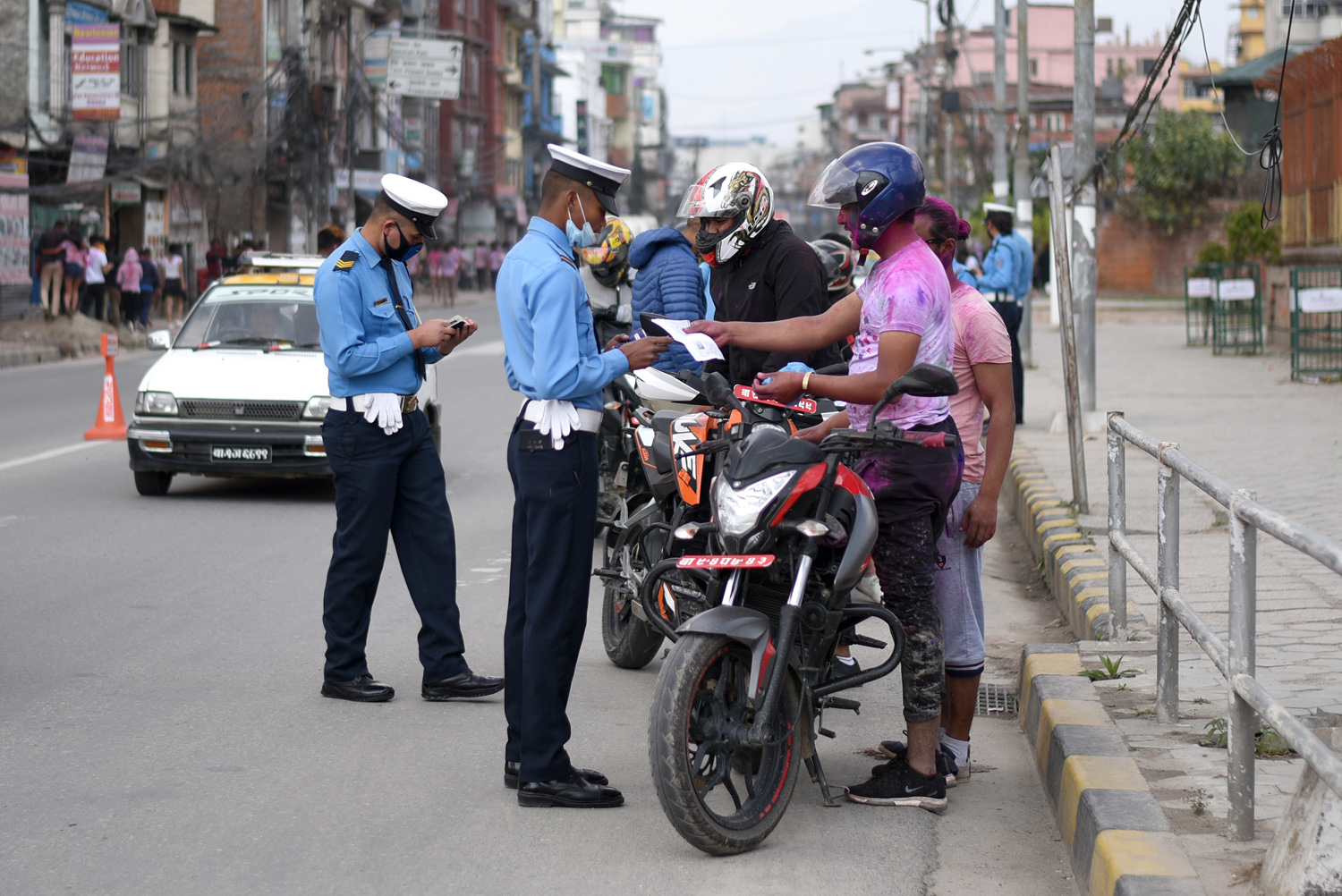Wake up, drivers! The rules of Bagmati Province are about to get stricter. If you’ve been ignoring those pesky traffic fines piling up on your record, you might soon find yourself unable to renew your driving license. The Bagmati Provincial Government is rolling out a bold new policy to tackle repeat offenders who dodge penalty payments. This move is part of a broader push to make the province’s roads safer and ensure everyone follows traffic rules. Let’s break down what this means for drivers, why it’s happening, and how it could change the way you drive in Bagmati.
Why Is Bagmati Taking This Step?
The Bagmati Provincial Government has noticed a growing problem: many drivers are racking up fines through the digital ticketing system but failing to pay them. These fines are issued for violations like speeding, running red lights, or ignoring traffic signs. While the digital system makes it easier to catch rule-breakers, it’s only effective if drivers settle their penalties. Too many motorists have been ignoring these fines, treating them like optional bills. This has led to a culture of non-compliance, undermining efforts to keep roads safe.
To address this, the government is hitting drivers where it hurts: their ability to legally drive. By suspending license renewal for those with unpaid fines, Bagmati is sending a clear message: follow the rules, or lose your driving privileges. This policy targets repeat offenders—those who repeatedly ignore fines, ensuring they can’t just keep driving without consequences.
How Does the Digital Ticketing System Work?
The digital ticketing system is a modern tool Bagmati Province uses to catch traffic violations. Instead of paper tickets, traffic police use electronic devices to issue fines, which are logged into a centralized database. Drivers receive notifications through apps or online portals, like the Nagarik App, which also links to their driving license and vehicle records. This system makes it easier to track violations and ensures accuracy in recording offenses.
For example, if you’re caught speeding by a traffic camera or stopped for illegal parking, the fine is recorded digitally. You’re supposed to pay it within a set time, usually through online platforms or at designated offices. But many drivers have been ignoring these notifications, leaving fines unpaid for months or even years. The new policy aims to close this loophole by tying fine payments to license renewal.
What Happens If You Don’t Pay Your Fines?
Under the new rules, if you have unpaid fines in the digital ticketing system, you won’t be able to renew your driving license until you clear them. This means that when your license expires, you’ll be stuck. Driving with an expired license is illegal and can lead to even heavier fines or vehicle impoundment. For repeat offenders, this could mean months without a valid license, disrupting daily routines like commuting to work or running errands.
The process is straightforward: when you apply for license renewal, the system will check your record for outstanding fines. If there are any, your application will be rejected until you pay up. The government hopes this will push drivers to settle their penalties promptly, knowing their ability to drive legally is on the line.
Why Is This Important for Road Safety?
Unpaid fines aren’t just about money—they’re a sign of bigger issues. Drivers who ignore penalties are often the same ones who repeatedly break traffic rules, putting themselves and others at risk. Speeding, reckless driving, and ignoring traffic signals are major causes of accidents in Bagmati Province. By cracking down on these offenders, the government aims to reduce accidents and make roads safer for everyone.
The policy also builds on Bagmati’s ongoing efforts to digitize transport services. The province has already introduced tools like the e-Blue Book and Electronic Driving License (EDL) systems, allowing drivers to manage their licenses and vehicle documents through the Nagarik App. These digital tools make it easier to track compliance and ensure drivers face consequences for violations. Suspending license renewal is a natural next step in this push for accountability.
How Will This Affect Drivers?
For law-abiding drivers who pay their fines on time, this policy won’t change much. You’ll continue to renew your driving license as usual, either online or at transport offices. But for those with unpaid fines, it’s a wake-up call. You’ll need to check your record, settle any outstanding penalties, and stay on top of future fines to avoid trouble.
The policy could hit repeat offenders hardest. If you’re someone who’s been ignoring multiple fines, you might face a hefty bill to clear your record before renewing your driving license. This could also affect commercial drivers, like taxi or bus operators, who rely on their licenses for their livelihood. For them, staying compliant will be crucial to keeping their jobs.
What Can Drivers Do to Stay Compliant?
To avoid getting caught by this new rule, drivers should take a few simple steps:
- Check Your Fine Status: Use the Nagarik App or visit the Department of Transport Management’s website to see if you have any unpaid fines.
- Pay Promptly: Settle any outstanding penalties as soon as possible. Most fines can be paid online, making it quick and convenient.
- Follow Traffic Rules: The best way to avoid fines is to drive safely. Stick to speed limits, obey traffic signals, and park only in designated areas.
- Keep Records Updated: Make sure your contact information is current in the digital ticketing system so you receive fine notifications without delay.
- The Bigger Picture
This policy is part of Bagmati’s broader mission to modernize its transport system. The province has been working to make services like license renewal and vehicle registration paperless and efficient. By linking fines to license renewals, the government is using technology to enforce accountability. It’s also a step toward aligning with global standards for road safety, where strict enforcement is key to reducing accidents.
The move has sparked some debate. Some drivers worry it could be too harsh, especially for those who miss fine notifications due to technical issues or lack of access to digital platforms. Others see it as a necessary step to curb reckless driving. Regardless, the policy shows Bagmati’s commitment to making its roads safer and more orderly.
What’s Next for Bagmati Drivers?
As the Bagmati Provincial Government prepares to roll out this policy, drivers should stay informed. The exact start date hasn’t been announced, but posts on X suggest it’s in the works. Keep an eye on official announcements from the Department of Transport Management or the Nagarik App for updates. In the meantime, clearing any unpaid fines is a smart move to avoid surprises when it’s time to renew your driving license.
This policy is a bold step toward stricter traffic enforcement. It’s a reminder that driving is a privilege, not a right, and comes with responsibilities. By tying license renewal to fine payments, Bagmati is pushing drivers to take those responsibilities seriously, one fine at a time.









